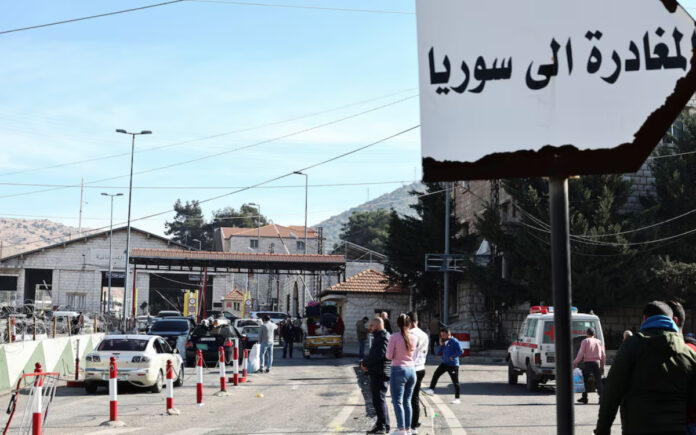Damascus: Refugees displaced by Syria’s protracted civil war began returning home on Wednesday as a newly appointed interim prime minister pledged to lead the nation through a transitional phase. The appointment follows the overthrow of President Bashar al-Assad by rebel forces led by Hayat Tahrir al-Sham (HTS), a former al-Qaeda affiliate.
U.S. officials have urged HTS and its leadership to adopt an inclusive approach in forming a transitional government rather than assuming unilateral control.
“The new government must uphold clear commitments to fully respect the rights of minorities, facilitate the flow of humanitarian assistance to all in need, prevent Syria from being used as a base for terrorism or posing a threat to its neighbors,” U.S. Secretary of State Antony Blinken emphasized in a statement.
HTS Downplays Jihadist Roots
HTS, which led the anti-Assad rebellion, has sought to distance itself from its jihadist origins. On Tuesday, Mohammed al-Bashir, a relatively unknown figure across much of Syria, appeared on state television to announce his appointment as caretaker prime minister until March 1.
“Today we held a cabinet meeting that included a team from the Salvation government that was working in Idlib and its vicinity, and the government of the ousted regime,” Bashir said. His statement was delivered against a backdrop of two flags: the opposition’s green, black, and white flag and a white flag bearing the Islamic oath of faith, a symbol often associated with Sunni Islamist factions.
Rebuilding a War-Ravaged Nation
The task of rebuilding Syria is monumental. The civil war has devastated the country’s cities, displaced millions, and crippled its economy under international sanctions. Despite these challenges, refugees from neighboring countries, including Turkey, have started returning home.
Ala Jabeer, a refugee preparing to cross the border with his 10-year-old daughter, reflected on his decision.
“God willing, things will be better than under Assad’s government. We’ve already seen that his oppression is over,” he said. “The most important reason for me to return is that my mother lives in Latakia. She can take care of my daughter, so I can work.”
Jabeer’s return comes after the loss of his wife and three children in last year’s devastating earthquakes. For many like him, the hope of rebuilding their lives drives their journey back.
Signs of Normalcy in Damascus
In the capital city of Damascus, signs of life have begun to reemerge. Banks and shops reopened on Tuesday, traffic returned to the streets, and cleaners resumed their work. The presence of armed personnel has noticeably diminished, marking a shift in the city’s atmosphere.
U.S. Response and Caution
U.S. Deputy National Security Adviser Jon Finer stated that Washington is evaluating its engagement with the rebel groups. While no formal policy changes have been announced, Finer noted that actions would dictate the U.S. response.
“We have seen over the years any number of militant groups who have seized power, who have promised that they would respect minorities, who have promised that they would respect religious freedom, promised that they would govern in an inclusive way, and then see them fail to meet those promises,” said State Department spokesperson Matthew Miller.
Also Read | Trump, Musk, and AGI: OpenAI CFO Shares Vision for the AI Era
Miller also highlighted ongoing U.S. efforts to locate American journalist Austin Tice, kidnapped in Syria in 2012, calling this a “priority” for Washington.
Israeli Airstrikes and Regional Tensions
Israeli airstrikes have targeted Syrian army bases, decimating strategic weapons stockpiles. Israeli Defense Minister Israel Katz stated that the strikes aim to establish a “sterile defense zone” in southern Syria, enforced without a permanent troop presence.
Also Read | Google’s $50 Billion Investment: AI at the Core of Search and Healthcare
Although Israel has acknowledged its forces operating beyond the buffer zone established after the 1973 Middle East war, it denied advancing toward Damascus. The incursions have drawn condemnation from Turkey, Egypt, Qatar, and Saudi Arabia, adding to the challenges faced by Syria’s new administration.
A Nation in Transition
As Syria embarks on a new chapter, the path forward remains fraught with challenges. From rebuilding shattered infrastructure to ensuring governance that respects human rights and inclusivity, the interim administration faces an uphill battle in restoring stability and unity.



